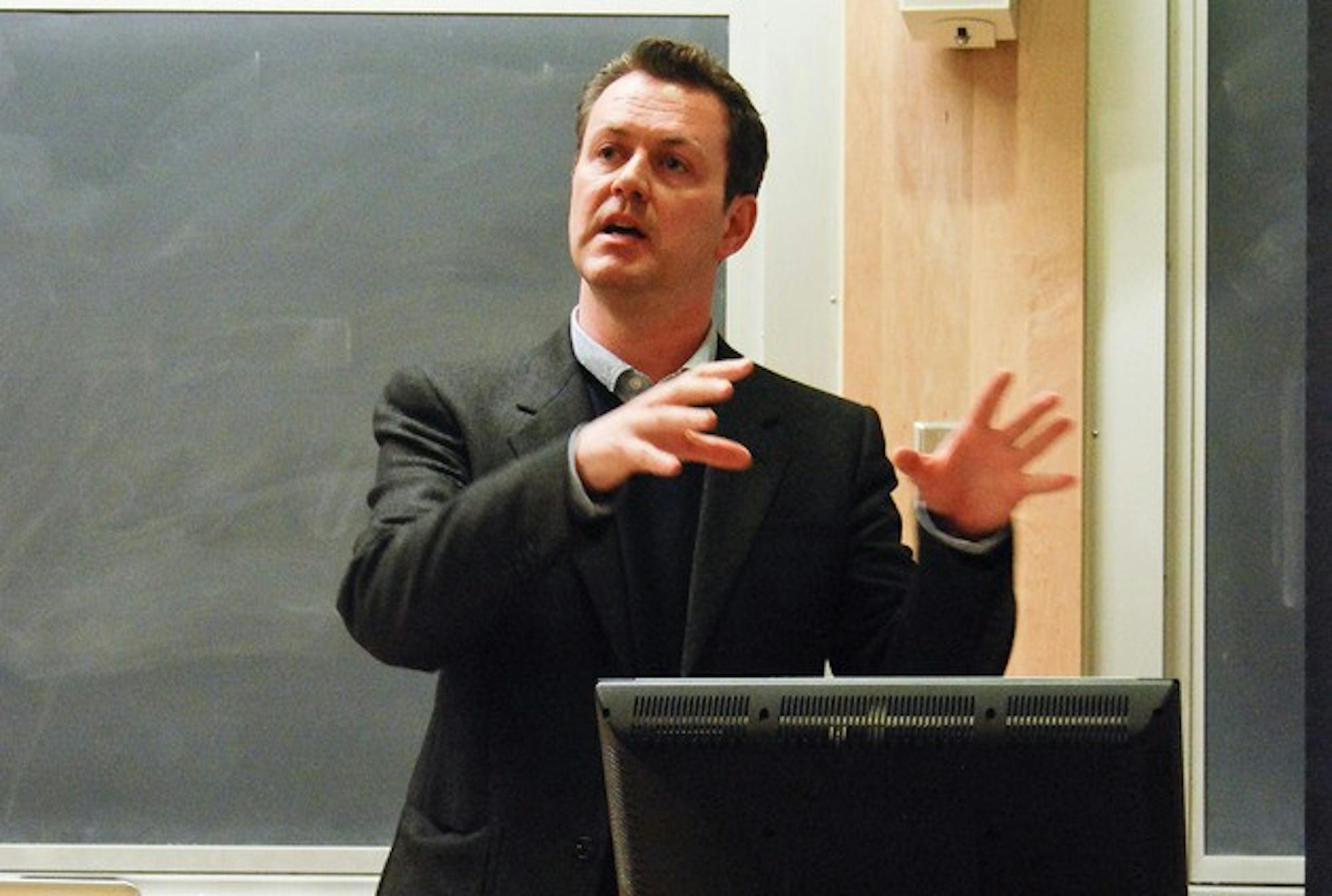Drawing on decades of his fieldwork in Nepal and the Himalayan mountain range, Turin outlined the challenges faced by small-scale communities whose languages are at risk of disappearing and the potential that digital media has to preserve them.
Turin stressed the importance of language diversity in his lecture. The marginalization of smaller languages represents the drama and paradox of globalization.
"The very processes that are eroding diversity are the same forces bringing more people together," he said.
Turin described his extensive efforts to document and convert a Nepalese oral language, Thangmi, into a written one, complete with a text and a preliminary dictionary. Thangmi, like other local Nepalese languages, has elements that reflect the geography of the Himalayan region.
"There are four different words for come' and four different words for go,' all depending on the angle of inclination and elevation," he said.
Turin stressed the symbolic and political importance that a written language can hold for a community. Without a written language, the impoverished Nepalese community that Turin worked with found life and education more difficult.
"Until that point, books, script and text had been kept away from this language, effectively marginalizing these people," he said. "There is a powerful association between a language and its script."
There is a great need for language diversity preservation, Turin said. Approximately 97 percent of the world's population speak about 4 percent of the world's languages, while 3 percent of the global community speak 96 percent of the world's languages.
Through his involvement in the Digital Himalaya and the World Oral Literature projects, which he also directs, Turin attempts to preserve cultural heritage through language.
Digital Himalaya, based out of the University of Cambridge and Yale University, was designed to archive and make available ethnographic materials from the Himalayan region.
Its digitizes anthropological materials, like sound recordings and photographs, and provide them to researchers and Nepalese community members.
The World Oral Literature project is an initiative to document endangered oral literatures before they disappear without record.
Anthropology professor Sienna Craig has collaborated with Turin in the past, and invited him to campus to discuss his interdisciplinary work.
"We don't have a lot of opportunities to bring our departments together," she said, referring to the linguistics and anthropology departments.
Students who attended the lecture found it informative and thought-provoking.
Alexandra di Suvero '16 said she is interested in linguistics and attended because she was curious about the subject.
Brett Teplitz '15, who is enrolled in a Native American Studies class on oral traditional literature, said he found the lecture enhanced his perspective.
Turin enjoyed speaking at the College and connecting with the audience members.
"There was a level of nuance and understanding to the questions that were asked that goes beyond the normal undergraduate level," he said.
The event, titled, "Collect, Protect, Connect: Documenting the Voices of Vanishing Worlds," was co-sponsored the Shelley and Donald Rubin Foundation, the linguistic and cognitive sciences department and the Asian and Middle Eastern studies program.




